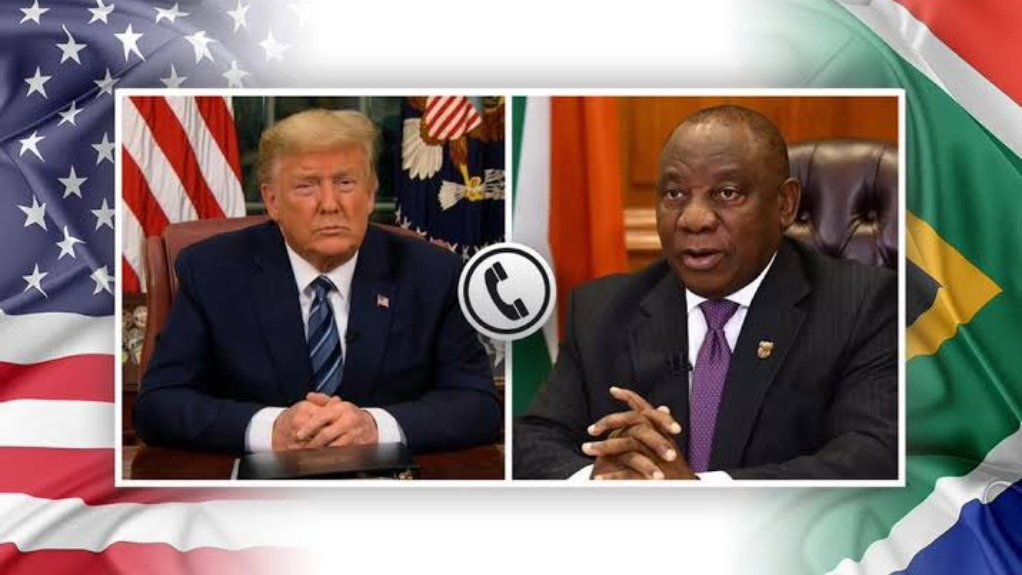South Africa should not hand the G20 presidency over to the US, Columbia University Center for Sustainable Development director Jeffrey Sachs has suggested.
“Don’t hand it over. If there's no one here to hand it over to, don't hand it over. The US is doing its own thing. I don't know whether there will be a G20 in the US or not. You never know, day by day, what is happening in my weird country,” he said on November 21 at The European House – Ambrosetti (TEHA) CEO dialogue on Southern Africa, in Johannesburg.
US President Donald Trump has declined to attend the G20 in South Africa, stating that no US officials will participate in any G20 discussions. His reasons for boycotting the event range from his disapproval of South Africa’s racial policies and the expropriation without compensation law, to concerns about the inclusive globalist agenda promoted at the G20, which does not align with the Trump administration’s more nationalist “US-first” approach to policy.
On November 20, President Cyril Ramaphosa said the US had changed its position and was considering attending the event after all.
However, this was contradicted a few hours later when US press secretary Caroline Levitt stated that Ramaphosa was “running his mouth” and that the White House “did not appreciate that kind of language”.
She confirmed that the US had not altered its stance on attending the G20, but that a US Embassy official would be present solely to accept the handover of the presidency and would not participate in talks.
Sachs, who is also UN Sustainable Development Solutions Network president and a special adviser to the UN secretary-general, downplayed the significance of the US absence, suggesting that the meeting’s agenda should remain focused elsewhere.
“The real focus should be on Africa, and the real focus should not be on growth. It should be on rapid growth. The key for Africa is to be achieving 8% to 10% a year economic growth, because this is the real potential of the continent. Africa should be following in the line of China and India on a very rapid growth trajectory. That should be the main focus of this G20,” he said.
Sachs compared Africa’s population of about 1.5-billion people with China’s 1.4-billion and India’s 1.5-billion. He argued that this placed the continent in a position to follow similar development paths, provided certain conditions were met.
He maintained that Africa would need to be viewed as a single economic space rather than as 54 separate markets. According to him, only this approach would create the scale required for the accelerated growth he believed was possible from the continent’s current economic base.
Sachs described this starting point as offering potential for rapid progress but also warned of heightened risks if African economies failed to meet that pace of expansion.
He linked the continent’s long-term stability to economic advancement, arguing that this required collaboration between business leaders and a unified continental market.
He added that a key priority should be ensuring the Africa Continental Free Trade Area became fully functional at scale, supported by connective infrastructure and a workforce equipped with the skills needed to sustain annual growth of about 10% over the coming generation.
He warned that without broader skills development, and particularly if two-thirds of young people continued failing to complete secondary school, Africa would lose any chance of a demographic dividend and instead face what he characterised as a demographic crisis.
Sachs said that this challenge remained central to the continent’s development prospects.
He argued that the African Union (AU) should function as an empowered continental institution rather than as a limited administrative body, stating that it should play a guiding role in building continent-wide success in education.
However, he said the AU was not yet fulfilling that role and required greater authority from national leaders in order to act effectively.
Sachs added that he hoped this week’s G20 discussions would reinforce a shift in focus towards African priorities.
“Don't just be going along and doing things business as usual. That won't work. And everybody [should] send a big message of thanks to Trump for not being here, because it's good. We can focus on real things, not on Trump, and that actually will help the quality of this meeting tremendously,” Sachs suggested.
EMAIL THIS ARTICLE SAVE THIS ARTICLE ARTICLE ENQUIRY FEEDBACK
To subscribe email subscriptions@creamermedia.co.za or click here
To advertise email advertising@creamermedia.co.za or click here











